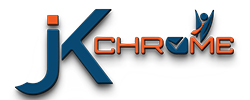JKSSB JE Civil Syllabus PDF
JKSSB JE Civil Syllabus PDF: Aspiring candidates preparing for the JKSSB JE Civil Exam can easily access the JKSSB JE Syllabus through the direct link provided in this article.
By thoroughly understanding the syllabus, individuals can prepare effectively and attain favourable results in the examination. This article presents a comprehensive overview of the JKSSB JE Syllabus.
JKSSB JE Civil Syllabus Overview
| Name of the Exam | JKSSB JE Civil |
| Conducting Body | Jammu Kashmir Services Selection Board (JKSSB) |
| Post | Junior Engineer Civil |
| Exam Level | State level (J&K) |
| Mode of Application | Online |
| Category | J&K Govt Jobs |
| Selection Procedure | CBT |
| Official Website | jkssb.nic.in |
The JKSSB JE Civil Syllabus for the CBT Exam is given below:
| IMPORTANT LINKS: |
|---|
| JKSSB JE Civil Syllabus and Exam Pattern PDF | DOWNLOAD HERE |
| JKSSB JE Civil Previous Year Question Papers PDF | CLICK HERE |
| JKSSB JE Civil Study Material/Notes PDF | CLICK HERE |
JKSSB JE CIVIL Exam Pattern
The Junior Engineer Civil Exam for Jammu and Kashmir Service Selection Board comprises only one section, which is a written test with objective-style questions (CBT). The examination will last 120 minutes. In two hours, candidates have to answer 120 questions with 1 mark each.
| Number of questions | Duration | Total marks |
|---|---|---|
| 120 | 2 hours | 120 |
| Topic | Marks |
|---|---|
| Surveying | 10 |
| RCC Structures | 15 |
| Mechanical and Structural analysis | 15 |
| Soil mechanics | 10 |
| Irrigation Engineering | 10 |
| Fluid Mechanics and Hydraulics | 15 |
| Water supply And wastewater engineering | 10 |
| Highway Engineering | 10 |
| Railway Engineering | 10 |
| Constructional Planning Management | 15 |
- The candidate will be given one mark for each right response.
- There will be a 0.25-point deduction for each wrong answer.
- The written exam is based on the Multiple Choice Question format.
JKSSB JE CIVIL Exam Syllabus
Candidates taking the JKSSB JE CIVIL Exam should familiarise themselves with the JKSSB JE CIVIL Exam Syllabus & JKSSB JE CIVIL Exam Pattern listed below.
| Topic | Syllabus | Marks |
|---|---|---|
| Surveying | Importance of surveying, principles & classifications, measurements of distance & theodolite, directions, contouring, chain surveying, compass surveying, tacheometry, traversing, levelling, plane table surveying, curves. | 10 marks |
| Mechanics and Structural Analysis | IntroductionConcept of rigid body scalar and vector quantities, moment, simple machines, laws of forces, friction, torsion, centre of gravity, Properties of materials, Bending moment and shear force in statistically determinate beams.Simple stress & strain relationship. Stress & strain in two dimensions, principal stresses, stress transformation. Simple bending theory, unsymmetrical bending, flexural and shear stresses, shear centre. Thin-walled pressure vessels, combined and direct bending stresses, uniform torsion, buckling of column, combined. Slope and deflection, analysis of trusses. | 15 marks |
| RCC Structures | Concrete technology, Ingredients of concrete, admixtures, water-cement ratio, Non-destructive tests, workability properties of concrete, special concretes, basics of mix design.Concrete design-basic working stress & limit state design concepts, analysis of ultimate load capacity & design of members subjected to compression flexure, shear, compression and torsion by limit state methods. Basic elements of prestressed concrete, analysis of beam sections at transfer and service loads, one-way slab, two-way slab | 15 marks |
| Soil Mechanics | Origin of soils, properties, soil classification, three-phase system, fundamental definitions, relationship and interrelationship, flow of water through soils, permeability & seepage, effective stress principle, deformation of soils, compaction consolidation, SPT, shear strength, Density control, characteristics, plate load test, Measurement of field density by core cutter & soil exploration, sand replacement method, bearing capacity & its methods | 10 marks |
| Fluid Mechanics and Hydraulics | Properties of fluids, hydrostatic pressure, measurement of pressure, flow measurements, flow through pipes, flow through open channels, hydraulic pumps, the principle of conservation of mass, momentum, energy & corresponding equations, applications of momentum, Bernoulli’s equation & potential flow, laminar and turbulent flow, flow in pipes, pipe networks. Concept of boundary layer & its growth. Uniform flow, critical flow & gradually varied flow in channels, hydraulic jump Forces on immersed bodies, specific energy concept flow measurements in channels, tanks & pipes. Dimensional analysis and hydraulic modelling Kinematics of flow. | 15 marks |
| Irrigation Engineering | Introduction, the water requirement of crops, hydrological cycle, Dams, Canals, dams, canal headworks and regulatory works, cross drainage works, hydraulic structures, river training works, water-logging, drainage, groundwater recharge, well hydraulics | 10 marks |
| Water supply and wastewater Engineering | Introduction, quantity of water, quality of water, water treatment, conveyance of water, laying out of pipes, building water supply, water supply fixtures and installation, plumbing, sewerage system, laying and construction of sewers, sewage characteristics, Methods of disposal, sewage treatment, building drainage, air and noise pollution | 10 marks |
| Highway Engineering | History of the development of highway and planning, Definitions of various terms used in highway engineering., Methods of road construction, IRC classification, Highway surveys and plans Geometric design, Different types of road materials in use, Binders, Types of pavement, CBR method, subgrade preparation, WBM, WMM, Bituminous Macadam, dense bituminous macadam, special problems in hill road | 10 marks |
| Railway Engineering | History of Indian railways, Gauges used, the permanent way its components, Types of rails, creep, welding, Rail fixtures and fastenings, Signalling, Points and Crossings, Bridge terminology, classification, components, foundations. | 10 marks |
| Constructional Planning Management | Network diagrams, PERT-CPM, cost optimization contracts, tenders, depreciation, valuation, organization, measurement books, cash book, functions of management, construction planning, quality control, inventory control, Estimation and costing definitions, methods of estimation and type of estimates | 15 marks |
